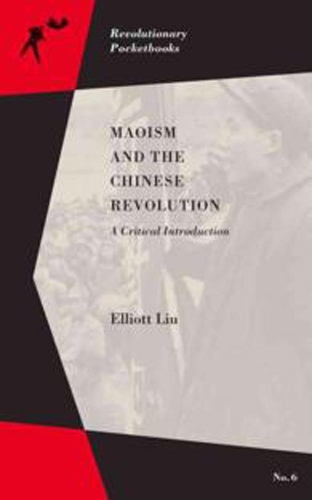
Maoism And The Chinese Revolution: A Critical Introduction
(Paperback)
Publishing Details
Maoism And The Chinese Revolution: A Critical Introduction
By (Author) Elliot Liu
PM Press
PM Press
7th October 2016
United States
Classifications
General
Non Fiction
Asian history
951.05
Physical Properties
Paperback
150
Width 127mm, Height 203mm
148g
Description
The Chinese Revolution changed the face of the twentieth century, and the politics that issued from it - often referred to as 'Maoism' - resonated with colonised and oppressed people from the 1970s down to the anti-capitalist movements of today. Maoism and the Chinese Revolution offers the novice reader a sweeping overview of five decades of Maoist revolutionary history. It covers the early years of the Chinese Communist Party, through decades of guerrilla warfare and rapid industrialisation, to the massive upheavals of the Cultural Revolution.
Reviews
"In Maoism and the Chinese Revolution, Elliott Liu provides a dual service: first, he offers a critical history of Maoism that is both comprehensive and concise; second, he teases out the main lessons of that history and poses the question of how and what we are to learn from it. It is an auspicious beginning to a badly needed debate."
--Andr Moncourt, coauthor of The Red Army Faction: A Documentary History
"How did a great revolution, carried out under the red flag and led by people who claimed, and believed themselves, to be communists, give rise to a monster slave state that may prolong the life of the capitalist system globally By presenting information about events in China and engaging seriously with Mao Zedong as philosopher and strategist, Elliott Liu shows that the outcome did not result from the triumph of Mao's 'capitalist road' opponents within the bureaucracy but was inherent in a project that sought to transform China into a capitalist society without relying on the traditional bourgeoisie. Liu has contributed to the discussion of what, if anything, in the Maoist tradition can be useful to those seeking to build a new society."
--Noel Ignatiev, author of How the Irish Became White
Author Bio
Elliott Liu is a political organizer and graduate student in the anthropology program at the CUNY Graduate Center in New York City. He works with the group Take Back the Bronx.
